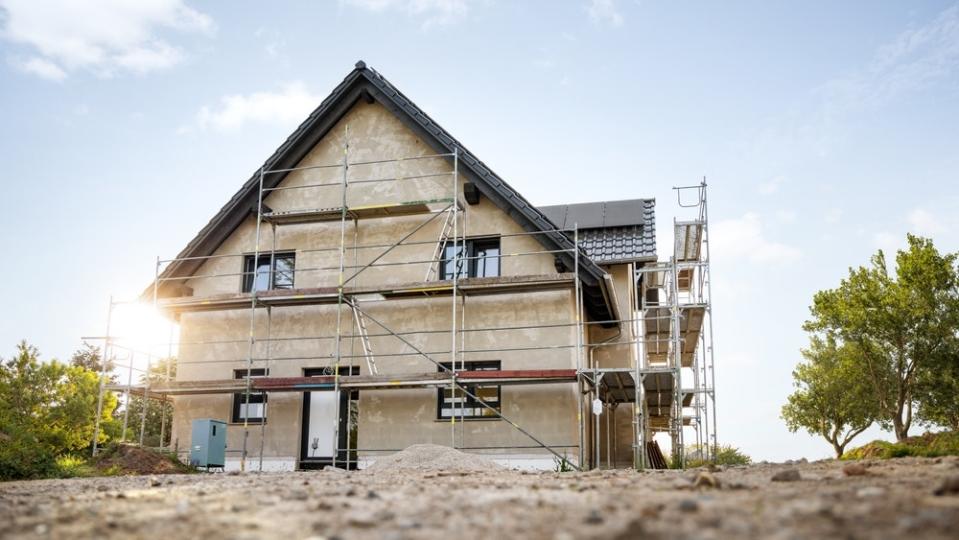Imagine Paying For A New House in 2016 That Still Wasn't Finished By 2024

Imagine finding your dream home, paying for it in total, and still being stuck in your old house eight years later because the developer hasn't completed construction. It sounds like the basis for a dystopian novel about real estate fraud, but it's an absolute nightmare that 1,500 would-be homeowners in Tianjin, China. Their horror stories symbolize deep structural issues facing China's real estate industry.
China's real estate industry has struggled for several years and all scandals have been beset by scandals. In Zhengzhou, a cash-strapped developer has offered to buy residents out of their homes if they will use the funds to purchase the developer's new homes. Ghost towns where hundreds of thousands of empty units built by Chinese developers dominate city skylines are familiar sights across Asia.
Yet, even by that standard, the situation in Tianjin stands out for its absurdity. How does a real estate developer get paid in full for properties and leave home buyers waiting eight years? Part of the issue lies in how real estate developers operate in China. It's not uncommon for developers in China to sell all the units in a particular development before completion.
Don't Miss:
A new fund backed by Jeff Bezos offers a 7-9% target yield with monthly dividends. Here’s how you can invest today.
Warren Buffett once said, "If you don't find a way to make money while you sleep, you will work until you die." These high-yield real estate notes that pay 7.5% – 9% make earning passive income easier than ever.
It's the ideal scenario in many ways because it theoretically allows the developer to cover their costs and lock in profits early. So, when developer Zhuoda Yido began selling new units to buyers in Tianjin in 2016 and promised they would be move-in ready by 2019, no one batted an eyelash about paying.
Tianjin, located near Beijing, is known as a suburb with mainly high-wage earners. As in the United States, the location of your home dramatically influences where your children go to school, making well-to-do suburbs like Tianjin very popular with homebuyers. Because of this, buyers eagerly paid deposits and fulfilled purchase contracts on Zhuoda Yido's Tianjin developments.
However, the downside of developers getting paid in full early is that it often leads to over-extension. Using a combination of client capital from undelivered units and easy lending standards, many Chinese developers built as many units as they could during the 2010s. The COVID crisis and the very public default by Evergrande, one of China's largest developers, led China's Central Government to tighten lending standards dramatically.
These tightened lending standards hit developers around the same time they realized they had built enough units nationwide to drastically outstrip demand. The resulting cash crunch is causing developers to resort to all financial gymnastics just to stay afloat. Some, like Zhuoda Yido, have delayed projects they have yet to complete despite receiving full buyer payment. This is the scenario in Tianjin.
Trending: Warren Buffett flipped his neighbor's $67,000 life savings into a $50 million fortune — How much is that worth today?
It's 2024, which means some buyers have been waiting for eight years and still have no firm idea of when they will be able to move in. Many buyers have seen their life circumstances change significantly since the original estimated completion date of 2019, making the property no longer necessary. For example, some people bought apartments in anticipation of their children attending school in Tianjin. Many of those children have now graduated.
Other buyers purchased units as retirement destinations for parents who have since passed away. Regardless of their original purchasing motivation, many now express the same regret and frustration. One buyer said, "I feel I’ve been tricked this whole time. I only request to return the house and get my money back."
Little could the buyers have imagined that insult would be added to their injury. According to CNBC, Zhuodo Yido recently made a settlement offer to the would-be homeowners, promising to complete their units by 2025 or 2026. However, that offer also included a request for money to pay the outstanding balances on their unfinished property and "other costs as determined by the developer."
The worst aspect of this situation is that the buyers in Tianjin are not alone. According to some estimates, Chinese developers have an inventory of 20 million pre-sold housing units that they have yet to finish or deliver to buyers. Speaking to CNBC, Dan Wang, chief economist for Hang Seng Bank, said, “What’s happened in Tianjin is not a unique phenomenon. I think there should be more of those cases coming out in the near term.”
Keep Reading:
Elon Musk and Jeff Bezos are bullish on one city that could dethrone New York and become the new financial capital of the US. Investing in its booming real estate market has never been more accessible.
Become a real estate investor today — How to start small by mirroring BlackRock’s big move.
"ACTIVE INVESTORS' SECRET WEAPON" Supercharge Your Stock Market Game with the #1 "news & everything else" trading tool: Benzinga Pro - Click here to start Your 14-Day Trial Now!
Get the latest stock analysis from Benzinga?
This article Imagine Paying For A New House in 2016 That Still Wasn't Finished By 2024 originally appeared on Benzinga.com
© 2024 Benzinga.com. Benzinga does not provide investment advice. All rights reserved.

 Yahoo Finance
Yahoo Finance 